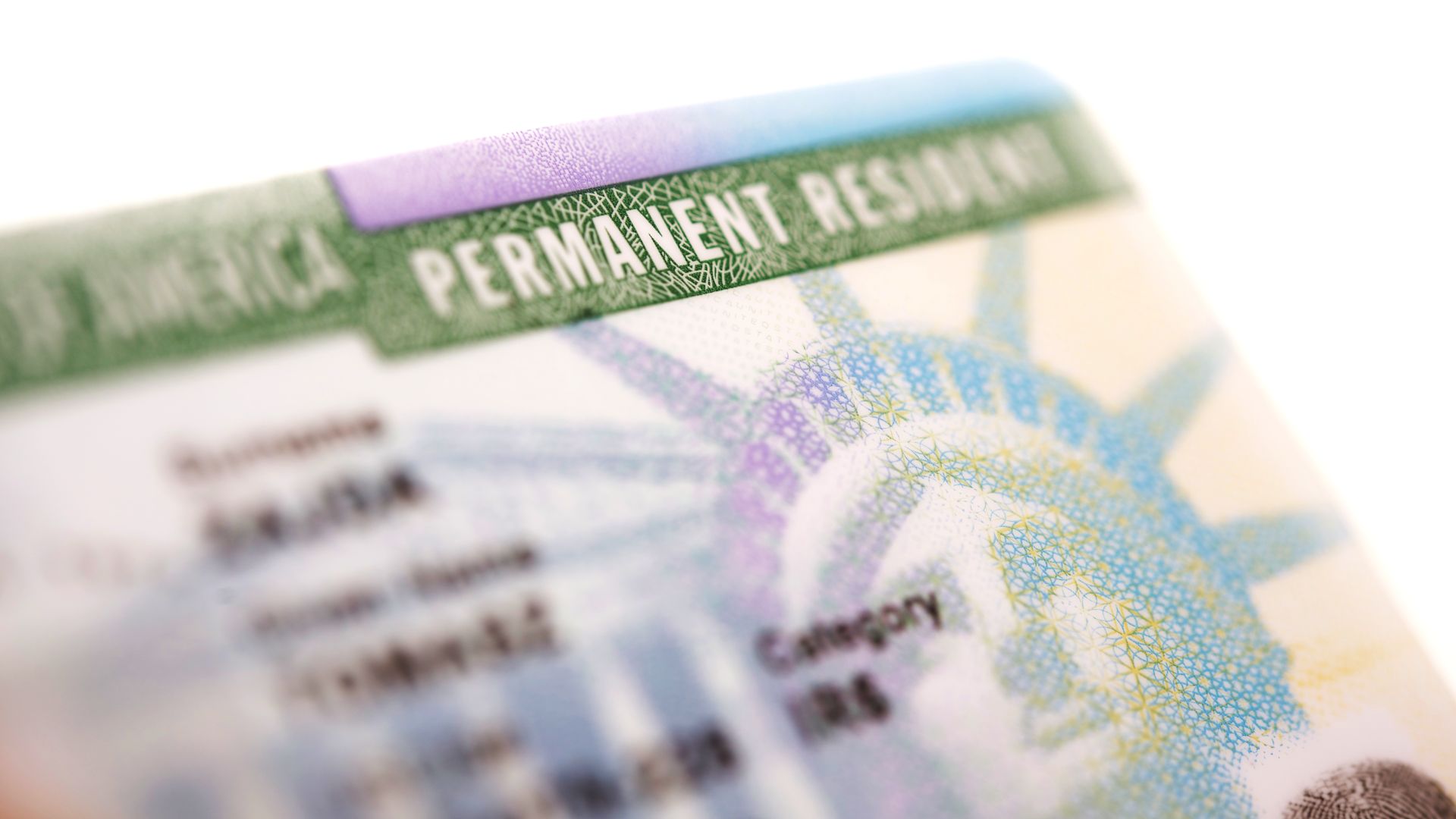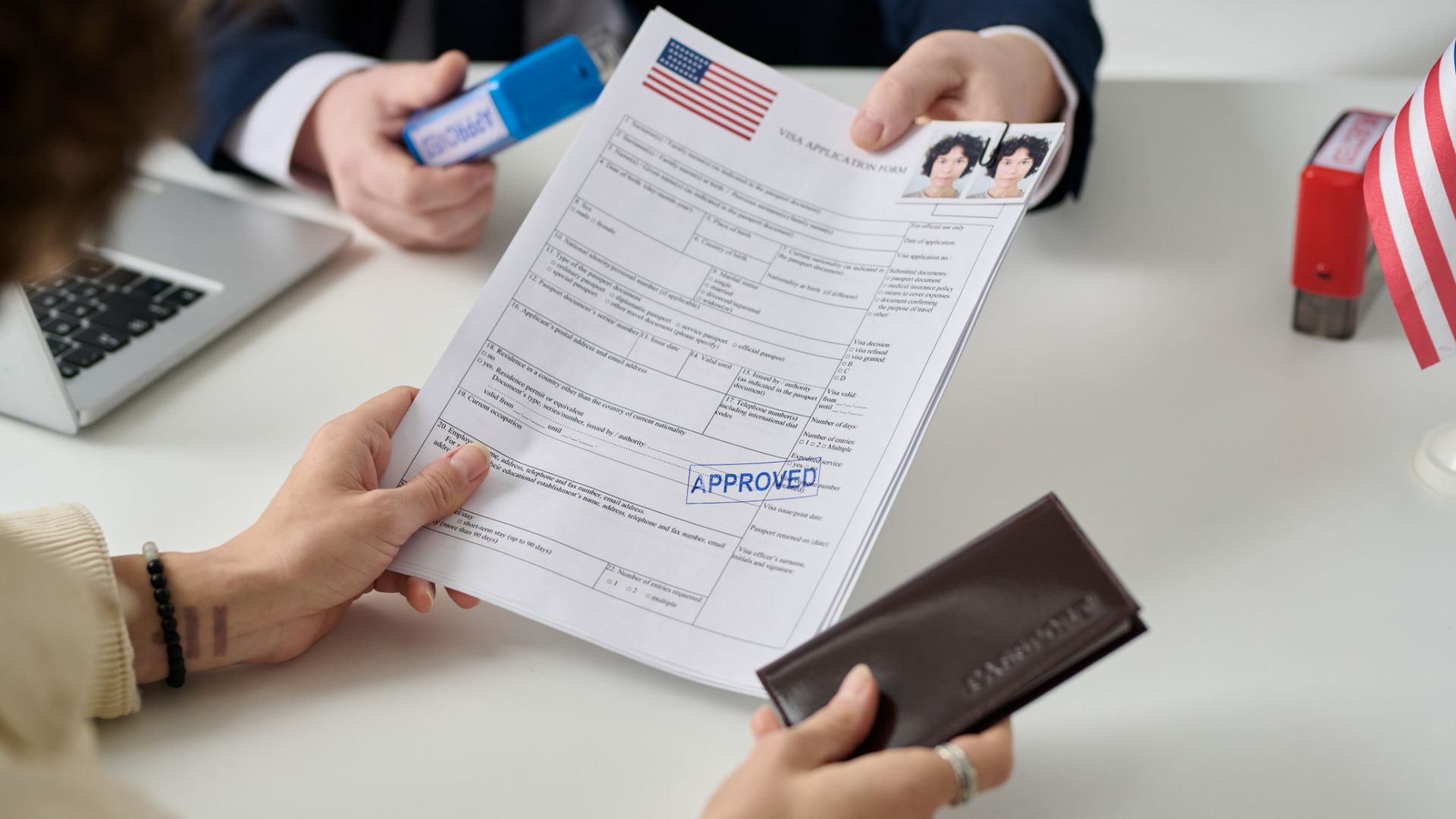National Visa Center (NVC) acts as a crucial step in the process of securing a visa for entry into the United States. This article provides a comprehensive guide on what the NVC is, its role in U.S. immigration, the steps it takes to process visa applications, and essential tips to navigate the process effectively.
Table of Contents
- Understanding the National Visa Center (NVC)
- The Role of the NVC in U.S. Immigration
- How the NVC Works
- 3.1 Petition Submission
- 3.2 Role of the U.S. Citizenship and Immigration Services (USCIS)
- 3.3 NVC Case Creation and Case Number Assignment
- 3.4 Document Collection and Submission to the NVC
- Visa Categories Handled by the NVC
- Key Steps in the NVC Process
- 5.1 Receiving a Case Number
- 5.2 Paying Fees
- 5.3 Submitting Affidavit of Support and Financial Documents
- 5.4 Civil Documents and Supporting Evidence
- 5.5 Scheduling the Visa Interview
- Understanding the NVC Timeline
- NVC Contact Information and Assistance
- Challenges and Common Mistakes to Avoid
- Conclusion
1. Understanding the National Visa Center (NVC)
The National Visa Center (NVC) is part of the U.S. Department of State. It plays a pivotal role in the U.S. immigration process for foreign nationals seeking permanent residency through family-sponsored or employment-based immigrant visas. Located in Portsmouth, New Hampshire, the NVC operates behind the scenes, bridging the gap between the U.S. Citizenship and Immigration Services (USCIS) and U.S. embassies or consulates abroad.
When an immigrant visa petition is approved by the USCIS, it is transferred to the NVC. The NVC is responsible for preparing the case file and coordinating with applicants to collect required documentation. Once all required materials are submitted and verified, the NVC arranges for an interview at a U.S. embassy or consulate in the applicant’s home country.
What the NVC Does Not Do
The NVC does not adjudicate or approve visas. Instead, it focuses on ensuring that all documentation is complete and ready before the applicant attends their visa interview. Visa approval ultimately rests with the consular officers who conduct the interviews.
2. The Role of the NVC in U.S. Immigration
The primary role of the NVC is to pre-process immigrant visa applications before they reach the consulate or embassy stage. The center collects all necessary documentation and fees, which are required for visa processing. Once everything is in order, the NVC schedules the interview for applicants at the U.S. consulate or embassy in their respective countries.
Key Responsibilities of the NVC:
- Assigning case numbers for approved petitions.
- Collecting visa fees.
- Gathering civil documents such as birth certificates, marriage certificates, and police records.
- Collecting financial documents and affidavits of support to verify sponsors’ ability to support applicants.
- Scheduling visa interviews at U.S. embassies or consulates abroad.
Without the NVC’s intervention, applicants would be burdened with organizing and submitting these documents directly to consulates or embassies, which could lead to inconsistencies and delays.
3. How the NVC Works
Understanding how the NVC fits into the overall immigration process helps demystify its purpose. Here’s a step-by-step breakdown of how the NVC operates:
3.1 Petition Submission
Every immigration process starts with a petition. Typically, for family-based immigration, a U.S. citizen or lawful permanent resident files Form I-130 (Petition for Alien Relative) with the USCIS, while employment-based immigration might require an employer to file Form I-140 (Immigrant Petition for Alien Worker).
Once this petition is filed, the USCIS evaluates it for eligibility. If approved, the petition is sent to the NVC for further processing.
3.2 Role of the U.S. Citizenship and Immigration Services (USCIS)
The USCIS plays a key role in adjudicating immigrant visa petitions. Their task is to determine whether the relationship or job offer meets the legal requirements for an immigrant visa. Once USCIS approves the petition, they forward the petition to the NVC for processing.
3.3 NVC Case Creation and Case Number Assignment
After the petition reaches the NVC, they assign it a unique case number and a billing ID number. This case number is essential for tracking the petition throughout the rest of the visa process.
For example:
- A case number for a family-based visa might look like ABC2023123456, where “ABC” refers to the U.S. embassy or consulate where the applicant will be interviewed.
Applicants should keep their NVC case number handy, as it will be required in all communications with the NVC.
3.4 Document Collection and Submission to the NVC
Once the case number is assigned, the NVC requests that applicants submit various documents. The exact documents vary depending on the type of visa being sought. For example, applicants for family-sponsored visas must provide proof of relationship to the petitioner (such as birth or marriage certificates), while employment-based applicants may need to submit job offers and credentials.
This stage is critical, as missing or incomplete documents can cause delays in the visa process. Applicants should carefully review the NVC’s document checklist and ensure they provide certified translations of any documents not in English.
4. Visa Categories Handled by the NVC
The NVC handles a wide range of immigrant visa categories. The most common are:
- Family-Sponsored Immigrant Visas: These visas are for immediate relatives of U.S. citizens or lawful permanent residents.
- Immediate Relatives (IR) categories include spouses, children, and parents.
- Family Preference (F) categories include siblings, adult children, and married children.
- Employment-Based Immigrant Visas: These are for foreign nationals seeking permanent employment in the U.S.
- There are five preference categories (EB-1 through EB-5), ranging from individuals with extraordinary abilities to investors.
- Diversity Visa Lottery (DV) Winners: Applicants selected for the diversity visa program (Green Card lottery) are also processed through the NVC.
5. Key Steps in the NVC Process
Successfully navigating the NVC process requires paying close attention to deadlines and instructions. The following are the key steps in the NVC process:
5.1 Receiving a Case Number
Once the NVC receives an approved petition from the USCIS, it creates a case and assigns a case number. Applicants will receive a letter or email from the NVC with their case number and instructions on the next steps. It’s essential to follow the instructions carefully and promptly.
5.2 Paying Fees
Applicants must pay two main fees to the NVC:
- Immigrant Visa Application Processing Fee: This fee covers the cost of processing the visa application.
- Affidavit of Support (AOS) Fee: This fee is associated with submitting the financial documents required to prove that the visa applicant will not become a public charge in the U.S.
Applicants can pay these fees through the Consular Electronic Application Center (CEAC), an online platform managed by the U.S. Department of State.
5.3 Submitting Affidavit of Support and Financial Documents
U.S. immigration law requires that family-based visa applicants, as well as some employment-based applicants, submit an Affidavit of Support (Form I-864). The affidavit is a legally binding document in which the sponsor agrees to provide financial support to the immigrant.
Along with the affidavit, sponsors must submit financial documents such as tax returns, W-2 forms, and pay stubs to demonstrate that they meet the income requirements.
5.4 Civil Documents and Supporting Evidence
Visa applicants must also submit civil documents that prove their identity, nationality, and eligibility for the visa. These may include:
- Birth certificates
- Marriage certificates (if applicable)
- Police certificates from every country where the applicant has lived for more than six months
- Divorce decrees (if applicable)
All documents not in English must be translated and certified.
5.5 Scheduling the Visa Interview
Once the NVC confirms that all fees have been paid and all documents are in order, they will schedule an interview for the applicant at the U.S. embassy or consulate in their home country. The applicant will receive instructions on preparing for the interview, including undergoing a medical examination and gathering any additional documents.
The visa interview is the final step before a decision is made on the application. A consular officer will ask questions to confirm the applicant’s eligibility and review their documentation. If approved, the applicant will be issued an immigrant visa, which allows them to enter the U.S. as a permanent resident.
6. Understanding the NVC Timeline
The timeline for NVC processing varies depending on several factors, including the type of visa being sought, the country where the applicant will be interviewed, and the applicant’s individual circumstances. However, typical timelines for NVC processing are as follows:
- Case Creation: After the petition is approved by USCIS, it can take the NVC several weeks to assign a case number.
- Fee Payment and Document Submission: The NVC encourages applicants to submit documents within 60 days of receiving the case number. After documents are submitted, the NVC typically takes 2-3 months to review them.
- Scheduling the Interview: Once the case is “documentarily qualified,” the NVC will schedule the visa interview. Depending on the U.S. embassy or consulate’s availability, this step may take several months.
7. NVC Contact Information and Assistance
The NVC can be contacted for assistance through various channels:
- Phone: Applicants can call the NVC at 1-603-334-0700.
- Correo electrónico: The NVC can be contacted via the CEAC messaging system.
- Mail: For those who prefer to contact the NVC via mail, their address is National Visa Center, 31 Rochester Avenue, Suite 200, Portsmouth, NH 03801-2915.
It is recommended to use email for routine inquiries, as phone wait times can be long, and the NVC receives a high volume of calls.
8. Challenges and Common Mistakes to Avoid
There are several challenges that applicants face when dealing with the NVC. Avoiding these common mistakes can help streamline the process:
- Incomplete Documents: One of the most common reasons for delays is failing to submit all required documents or submitting incomplete documents.
- Failure to Pay Fees: Fees must be paid before documents can be submitted. Delays in paying the required fees can result in significant processing delays.
- Missed Deadlines: Failing to respond to NVC requests within the given time frame can cause the case to be delayed or even canceled.
- Incorrect Information: Providing inaccurate information, such as incorrect names, dates, or relationships, can cause unnecessary complications in the visa process.








